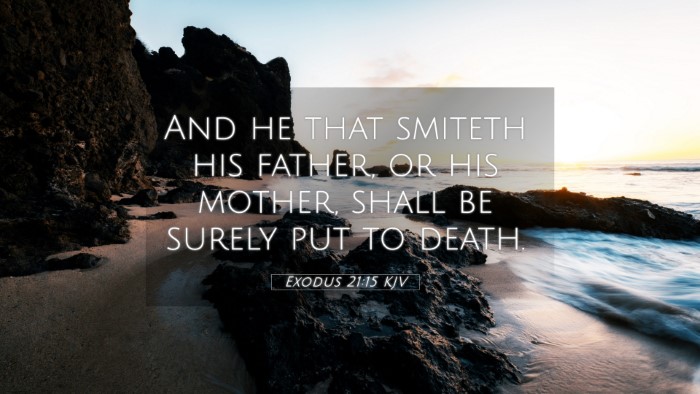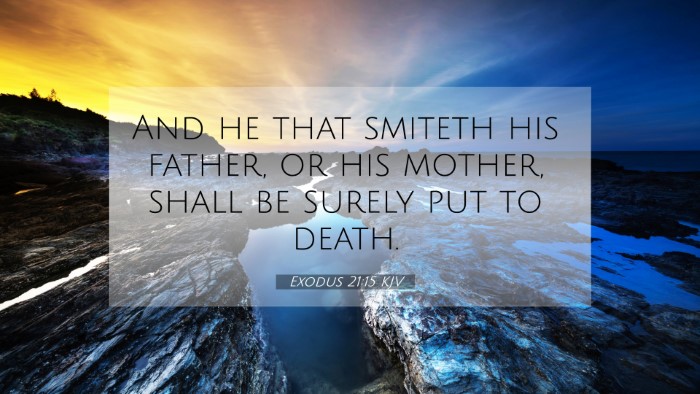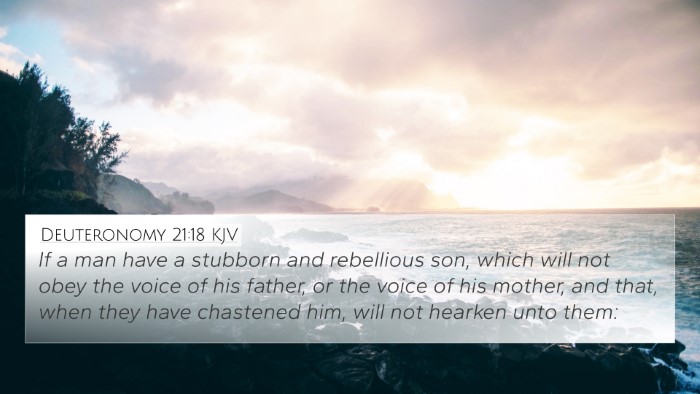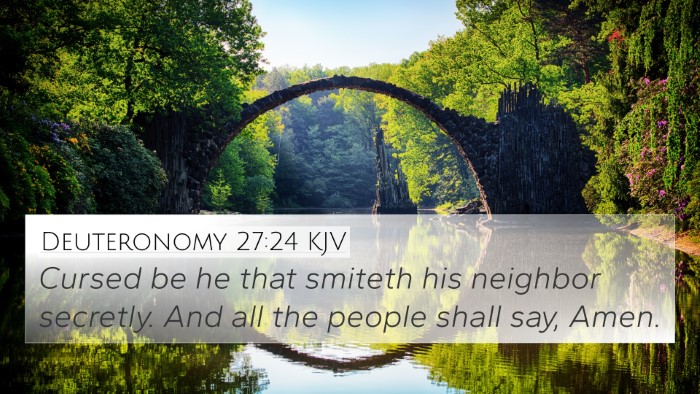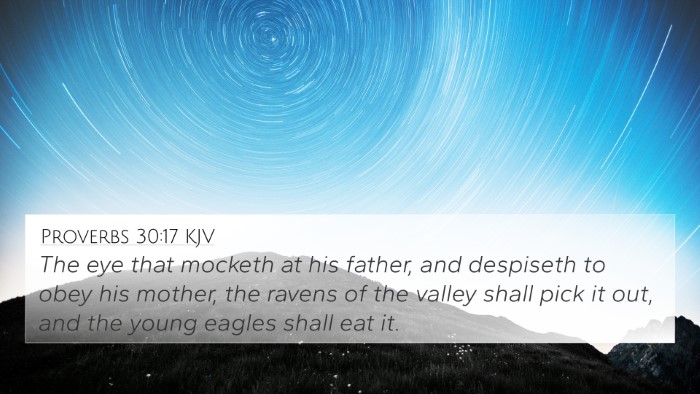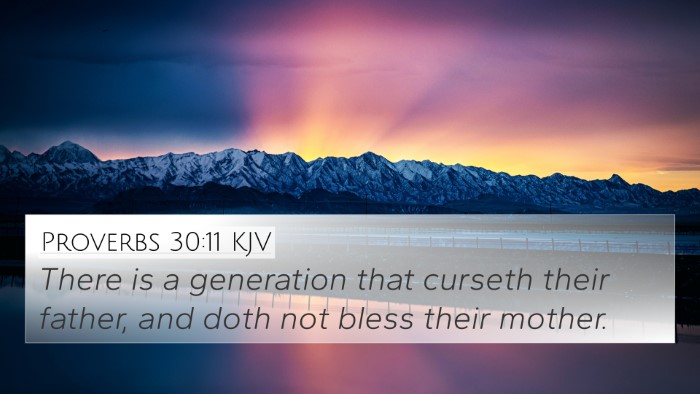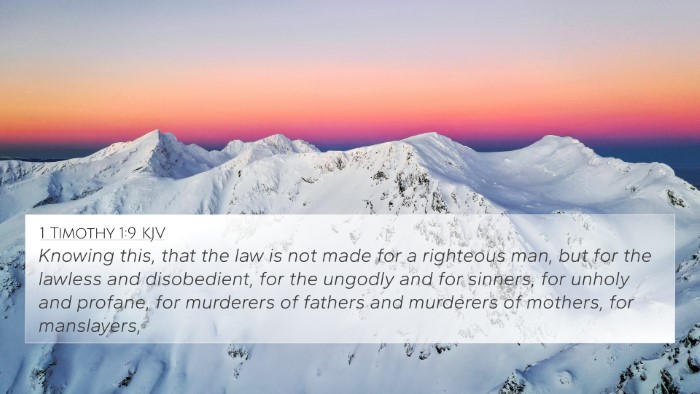Understanding Exodus 21:15
Exodus 21:15 states, "And he who strikes his father or his mother shall surely be put to death." This verse underscores the seriousness with which the law regards familial relationships and the sanctity of parental authority.
Meaning and Interpretation
This passage reflects the gravity of dishonor toward one's parents, highlighting a fundamental principle in biblical law: the importance of respect and obedience within the family unit.
Insights from Public Domain Commentaries
-
Matthew Henry's Commentary:
Henry emphasizes that this commandment serves as a reflection of God's authority and order within both the family and society. He points out that the punishment for striking a parent is severe, illustrating the dire consequences of such an act and reinforcing the importance of honoring one's parents.
-
Albert Barnes' Notes:
Barnes highlights that this law demonstrates a society's need to protect the family structure. The striking of a parent is seen not just as a physical act of violence but as an attack on the moral web of society. Therefore, the laws laid down in this verse ensure that respect within the family is paramount.
-
Adam Clarke's Commentary:
Clarke notes that the extreme punishment of death emphasizes the high value placed on familial relationships in the sight of God. He discusses how the Mosaic law establishes boundaries for human behavior, aiming to foster a community built on respect and care for one another, especially toward those who bear the greatest relational responsibility—parents.
Bible Verse Cross-References
This verse can be cross-referenced with several other biblical passages that discuss familial relationships and the consequences of dishonor:
- Exodus 20:12: "Honor your father and your mother, that your days may be long upon the land which the LORD your God is giving you."
- Leviticus 20:9: "For anyone who curses his father or his mother shall surely be put to death."
- Proverbs 30:17: "The eye that mocks a father and scorns a mother will be pecked out by the ravens of the valley and eaten by the vultures."
- Ephesians 6:1: "Children, obey your parents in the Lord, for this is right."
- Colossians 3:20: "Children, obey your parents in all things, for this is well pleasing to the Lord."
- 1 Timothy 5:8: "But if anyone does not provide for his own, and especially for those of his household, he has denied the faith and is worse than an unbeliever."
- Matthew 15:4: "For God commanded, saying, 'Honor your father and your mother'; and, 'He who curses father or mother, let him be put to death.'
Thematic Connections
The theme of honoring parents runs throughout Scripture, elucidating the connections between Old and New Testament teachings regarding obedience and respect:
- Familial Honor: The command to honor one's parents is a recurring motif, emphasizing stability within the family unit as foundational to a healthy society.
- Punishments for Disrespect: The severity of punishments for dishonoring parents in both Exodus and Leviticus illustrates the seriousness of such offenses.
- Duties of Children: New Testament writings reiterate the Old Testament command, affirming the principle that honoring parents is fundamental to a believer’s conduct.
Using Bible Cross-References Effectively
In studying the Bible, it is vital to utilize tools for cross-referencing effectively. Here are some methods:
- Bible Concordance: A concordance can help locate passages related to specific themes such as familial respect and honor.
- Cross-Reference Guide: Use a cross-reference guide to study how different verses relate to each other, particularly in the context of family dynamics.
- Chain References: Following thematic links can lead to a richer understanding of biblical principles across various books.
Conclusion
The analysis of Exodus 21:15 within its scriptural context highlights the enduring moral truths conveyed in the Bible concerning familial relationships. By examining cross-references, believers can deepen their understanding of how the principles of honor and obedience are woven throughout biblical texts.

